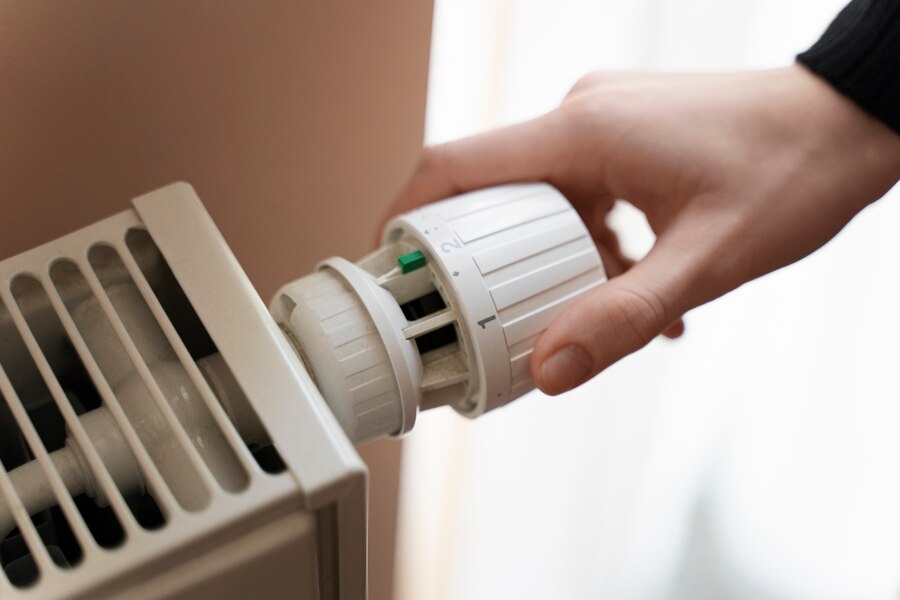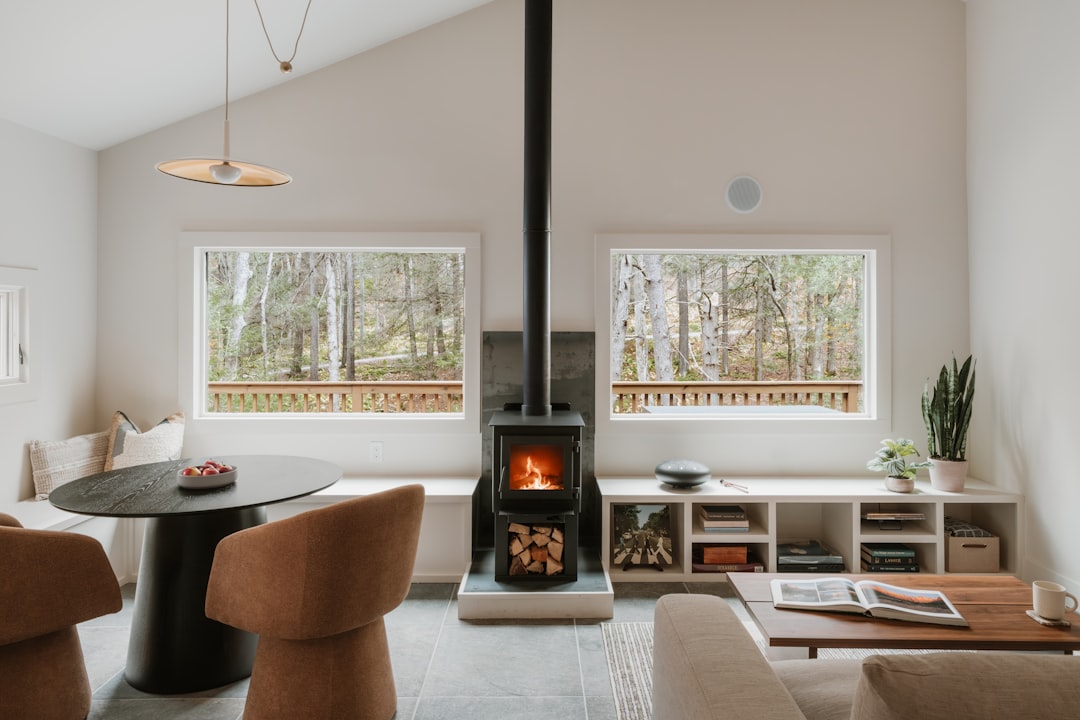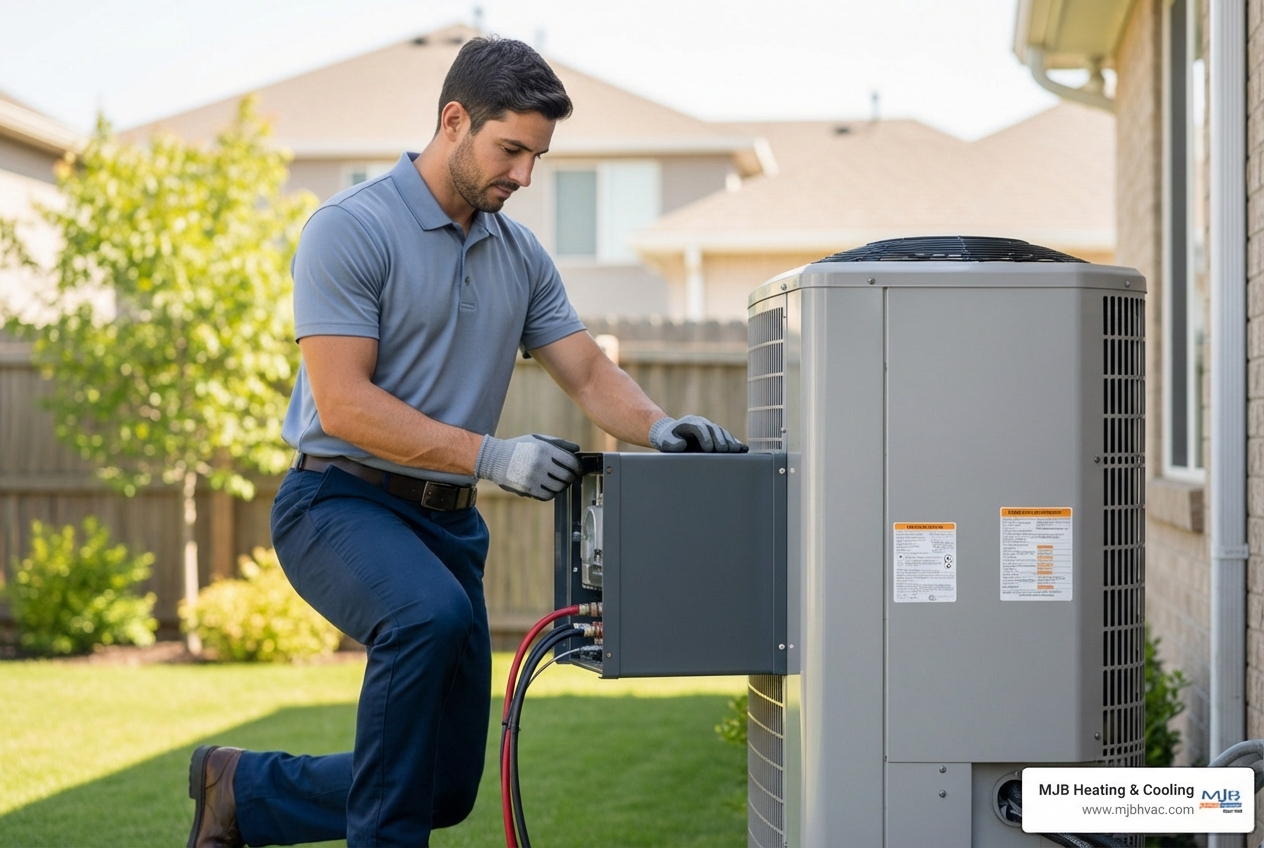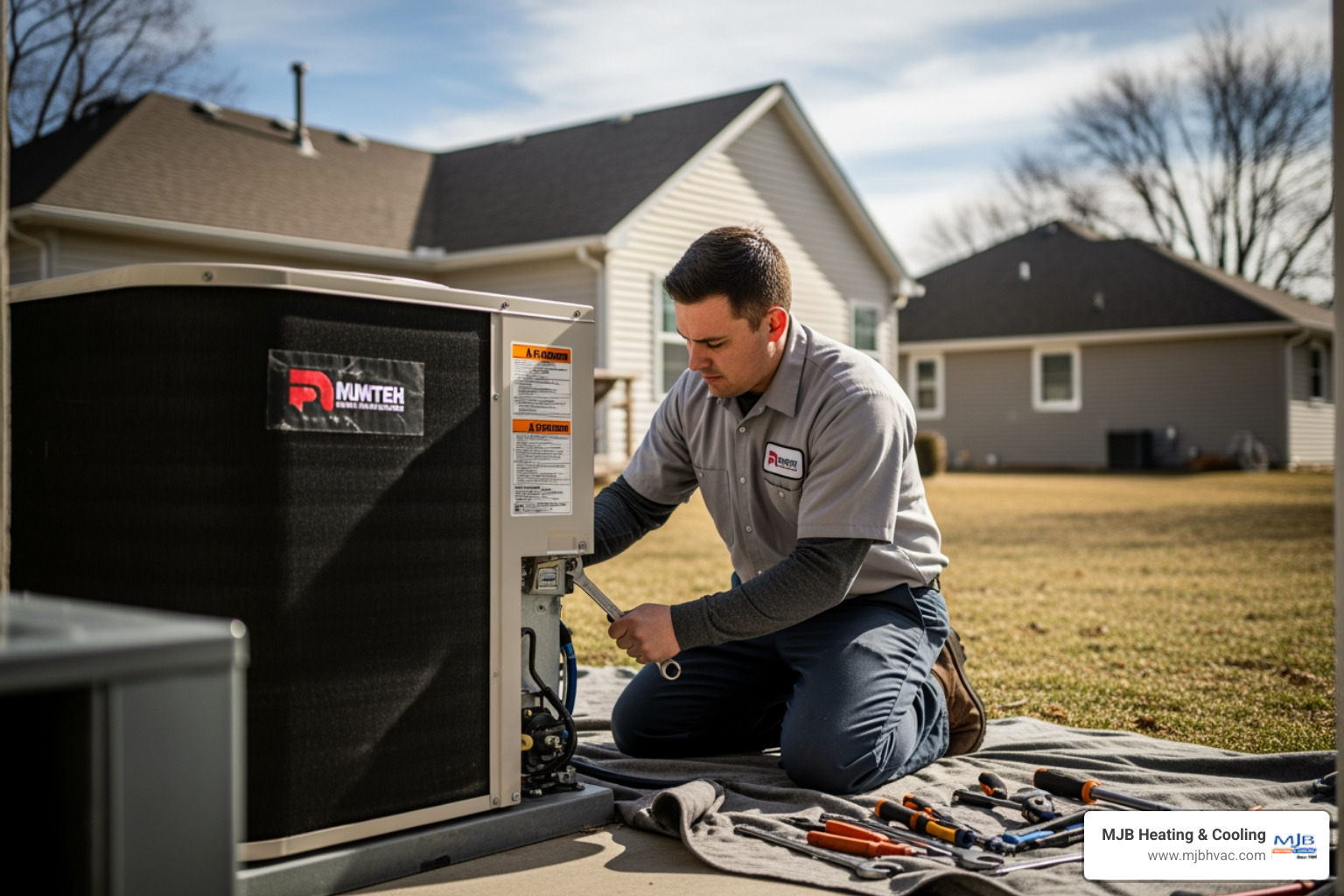


When the heat is on and your system is barely pushing warm air through the vents, frustration can build fast. A heating system that blows weak air makes it harder to keep your home comfortable, especially when you're relying on it during cooler evenings in Newton. A system that isn’t moving enough air won’t heat your home evenly, leading to warm and cold spots that don’t seem to level out. That can raise energy use and add strain to the equipment, two things no homeowner wants.
Many people notice weak airflow but delay fixing the issue because the system still turns on. The problem is, airflow trouble rarely fixes itself. Instead, it tends to get worse over time and sometimes causes damage to other parts of the system. Knowing what causes weak airflow and what steps to take is the best way to prevent bigger, more expensive problems down the line.
Common Causes Of Weak Airflow In A Heating System
There are a few main reasons your heating unit might be running but not delivering strong air through your vents. If you live in Newton and are noticing this issue, it’s often connected to buildup or something blocking the flow of air as it moves through your system. Here are a few issues that often lead to this exact problem:
1. Dirty or clogged air filter: Your system pulls air in before heating and redistributing it. If the air filter is clogged with dust, pet hair, or debris, that airflow gets restricted. With not enough air coming in, you get even less going out. This is one of the most common reasons for weak airflow.
2. Blocked or crushed ductwork: Ducts carry air from the heater to your vents. If something is blocking the ducts, like insulation, a piece of debris, or even a crushed section of metal, the airflow will suffer. You might get strong air in some rooms, and barely anything in others.
3. Blower motor trouble: The blower motor is what pushes the air through the system. If it's not spinning fast enough or fails altogether, the air will come out weak or not at all. You may hear a humming sound, or it might be completely quiet.
4. Dirty internal components: Dirt and dust don’t just stop at the filter. If the evaporator or blower wheel gets coated with grime, it can block the airflow and cause the system to become less effective.
5. Closed or blocked supply vents: Furniture pushed against vents or closed vent covers in rooms can reduce how well the heated air flows through your home. Homes in Newton with older HVAC layouts can sometimes have vent placements that get covered over time.
These problems don’t always have obvious signs beforehand. For example, one Newton homeowner recently dealt with uneven heating that turned out to be a disconnected duct in their crawl space. If the airflow feels off, something behind the scenes might be worth checking more closely.
How To Troubleshoot Weak Airflow From Your Heater
If your system isn’t blowing air like it used to, there are a few things you can try before calling for help. Keep in mind, these are basic inspection steps, not repairs. Most heating problems should still be handled by trained technicians to make sure everything stays safe and runs correctly. That said, here are some simple ways to check for common airflow issues:
- Replace the air filter: Start here, especially if you haven’t swapped it out in the last month or two. Filters clog quickly in dusty or high-use conditions.
- Check your supply and return vents: Walk through each room. Make sure nothing is covering your vents and that they’re wide open. Look behind rugs or furniture.
- Inspect your system’s intake area: Make sure nothing is blocking the area around where the system pulls air in. Dust buildup or nearby clutter can restrict the flow.
- Listen for strange noises: If the blower motor is running but weak, you might hear a low hum, clicking, or even a squeaking sound. These sounds can tell you more than you might think.
- Look around ducts you can access: Peek at visible ductwork in the basement, attic, or utility rooms. Look for sections that are loose, crimped, or look disconnected. Leaking ducts reduce airflow before the air ever reaches your vents.
These checks won’t fix the problem permanently, but they give you a better idea of what might be going wrong. If weak airflow continues or affects more than one room, there’s a good chance your system needs a deeper inspection and service.
When to Bring in Professional Help
If airflow problems keep coming back or don't improve after basic troubleshooting, it’s time to involve a trained technician. Heating systems can develop deeper mechanical issues that aren't visible during a quick check. For example, a weak blower motor might seem like a minor issue, but if left alone too long, it could burn out, damaging other system components along the way. The same goes for electrical or control board problems that can affect how your system powers and runs. These aren't safe to attempt repairing on your own.
Repeated weak airflow across all rooms likely points to system-wide issues such as improper air balance, a failing motor, or damaged ductwork. In older homes around Newton, ductwork that's sagging or disconnected can be tricky to find without the right tools. These aren't surface-level problems. They require a full inspection and testing to sort out what's going wrong and where.
A few signs it’s time to contact a trained heating professional:
- Air output remains weak after filter change and vent checks
- System shuts off before reaching the set temperature
- Strange burning smells or buzzing noises
- Blower fan doesn’t seem to run at full strength
- Heating bills noticeably increase with no change in usage
Trying to diagnose or repair these kinds of problems without proper knowledge or gear can put the entire system at risk, especially as it continues to age. The best approach is often to book a full inspection so that internal problems can be caught before they cause major breakdowns.
Preventive Maintenance Tips for Better Performance
The easiest way to avoid weak hot air problems is to make system maintenance part of your long-term home care. Preventing dust buildup and making sure parts work correctly year after year can help your heating system run stronger and more efficiently.
Here are a few practical steps for homeowners in Newton:
- Change your air filters regularly: Don’t wait until the filter looks gray or fuzzy. Set a reminder every 1 to 2 months and change it based on usage, pets, and air quality.
- Keep vents clean and open: Vacuum around vents and avoid placing any furniture or rugs over them. Let air pass without unnecessary blockage.
- Watch for shifting ductwork in crawl spaces and attics: Home updates, inspections, or even animals can knock ducts loose. If parts of your home heat unevenly, make a note to check reachable duct sections.
- Schedule a heating system checkup once a year: Have a technician test fan speed, airflow balance, and safety functions before cooler weather hits. Early fall is a good time for this in Newton homes.
- Pay attention to patterns: If a room used to warm quickly but now feels cooler, or if your thermostat numbers don’t match room temps, take those changes seriously. They’re often early signs of airflow failure or blower motor issues.
Preventive steps might seem small, but they go a long way in protecting the performance of your system. Just as you’d maintain your vehicle to avoid engine problems, consistent care helps avoid major heating issues and keeps airflow steady through the colder months.
Reliable Heating Fixes for Homeowners in Newton
When airflow problems take hold, comfort drops quickly and so does the performance of your heating system. Weak airflow isn’t just uncomfortable. It can signal deeper problems that, left unchecked, lead to high repair bills or full system breakdowns. Whether it’s a dirty fan, blocked duct, or a blower motor about to give out, narrowing down the cause and resolving it early can save both time and cost.
Homeowners in Newton rely on their heating systems for consistent warmth during cooler months. A system that runs inefficiently adds strain and uses more energy. That’s why regular maintenance, careful inspection, and calling on experienced professionals when the basics aren’t enough are all part of keeping your home warm and stress-free through the season. A safe and reliable heating system starts with airflow that works the way it should.
If you’re ready to restore reliable warmth to your home, consider professional support with furnace installation in Newton to help resolve persistent weak airflow and improve overall system performance. Trust MJB Heating & Cooling to ensure your home stays comfortable with dependable heating solutions. For a quick estimate or to book a service visit, please contact us today.

Customer Testimonials
proudly serving Wichita metro
Our Service Areas include



.avif)


















